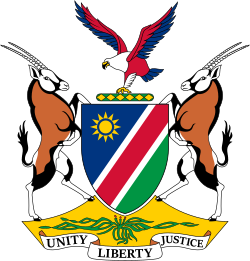It is proposed that this article be deleted because of the following concern:
If you can address this concern by improving, copyediting, sourcing, renaming, or merging the page, please edit this page and do so. You may remove this message if you improve the article or otherwise object to deletion for any reason. Although not required, you are encouraged to explain why you object to the deletion, either in your edit summary or on the talk page. If this template is removed, do not replace it . The article may be deleted if this message remains in place for seven days, i.e., after 16:39, 12 April 2025 (UTC). Find sources: "Progressive People's Party" Namibia – news · newspapers · books · scholar · JSTOR |
 |
|---|
The Progressive People's Party was a political party in Namibia. It was formed on 30 November, 1986. This was after a split in the Rehoboth Baster Association.